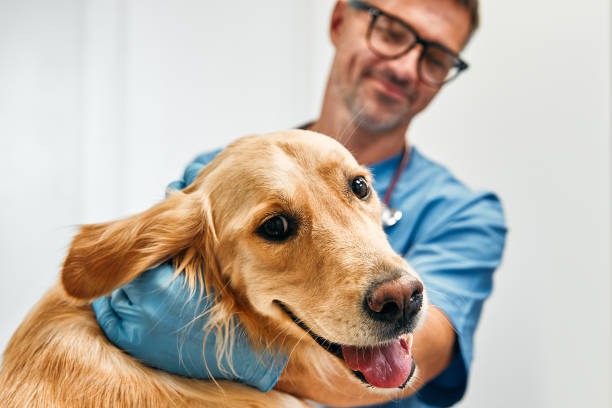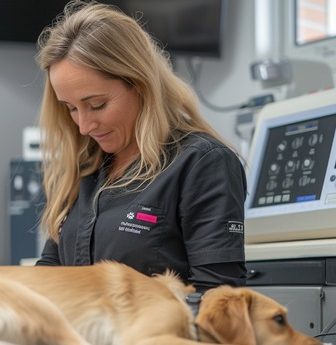Have you ever wondered what to do when your furry friend has a complex medical issue that your regular vet can’t quite pin down? That’s where a veterinary internal medicine specialist comes into play. These pros can offer an extra layer of expertise that’s sometimes crucial for your pet’s health. Let’s look into why they can be so beneficial for your beloved companion.
What Is a Veterinary Internal Medicine Specialist?
First things first, what exactly is a veterinary internal medicine specialist? They are veterinarians who have undergone extra years of training to become board-certified in internal medicine. Their training focuses on complex diseases impacting your pet’s internal systems. Think of them as the Sherlock Holmes of the veterinary world—they excel at diagnosing and managing complicated cases.
When Should You Consider Seeing One?
So, when should you actually think about consulting a veterinary internal medicine specialist? Here are a few scenarios:
-
Your pet has a persistent issue that your regular vet can’t solve.
-
You’ve noticed unusual symptoms like chronic vomiting, diarrhea, or coughing.
-
Your pet has a diagnosed condition, but it’s not responding well to treatment.
-
Specialized tests or treatments are required that your regular vet doesn’t offer.
1. Specialized Expertise
One of the biggest advantages of visiting a veterinary internal medicine specialist is their specialized expertise. These specialists are equipped with advanced knowledge and tools to diagnose complicated conditions. They can conduct and interpret specialized tests, ensuring your pet gets the most accurate diagnosis possible.
2. Advanced Diagnostic Tools
Veterinary internal medicine specialists have access to advanced diagnostic tools that many general practitioners may not. These include:
-
Ultrasounds and endoscopies
-
Advanced imaging techniques like CT scans and MRIs
-
Specialized blood tests and biopsies
These tools allow them to uncover what’s truly going on inside your pet’s body, offering a more precise diagnosis.
3. Customized Treatment Plans
Once a diagnosis is established, the treatment journey begins. Specialists don’t believe in one-size-fits-all solutions. Instead, they develop customized treatment plans tailored specifically to your pet’s needs. This approach ensures your pet receives the best possible care suited to their unique condition.
4. Monitoring Chronic Conditions
If your pet has a chronic condition like diabetes, kidney disease, or heart issues, ongoing monitoring is crucial. Regular vets do a fantastic job, but a specialist can offer a higher level of care. They monitor your pet’s status closely and adjust treatments as needed, ensuring better management of long-term conditions.
5. Immunology and Infectious Diseases
Specialists are indispensable in cases of immunological disorders or infectious diseases. They are particularly qualified to handle these complex issues, utilizing their expertise to suggest the best possible treatments. Whether it’s autoimmune diseases or unique infections, an internal medicine specialist is the go-to expert.
Sometimes, you just need another set of eyes on the problem. Getting a second opinion from a specialist can either confirm the existing diagnosis or reveal something new. This can be incredibly reassuring and ensure you’re on the right track for your pet’s treatment.
6. Streamlined Care Under One Roof
Many veterinary internal medicine services are offered in facilities equipped with multiple specialists. This can make appointments more convenient, given that you may have access to other types of specialized care in the same location. It’s like having a pet medical super-center at your disposal.
7. Quality of Life for Your Pet
Above all, the primary objective is to improve your pet’s quality of life. Specialists aim to manage symptoms and underlying conditions so that your pet can lead a healthier, happier life. Whether it’s managing pain, improving mobility, or boosting overall well-being, specialized care can make a world of difference.
How to Find a Veterinary Internal Medicine Specialist
Now that you’re convinced of the benefits, how do you find a specialist? Start with your regular vet, who likely has recommendations. You can also search specialized veterinary organizations and referral networks to find the right expert for your pet’s needs.
Steps to Take:
-
Consult your regular vet for recommendations.
-
Research specialized veterinary organizations online.
-
Read reviews and get feedback from other pet owners.
-
Schedule a consultation to meet the specialist and discuss your pet’s case.
Building a Relationship with the Specialist
After choosing a specialist, the next step is building a good relationship with them. Communication is key. Make sure you feel comfortable discussing your pet’s symptoms and concerns openly. Ask questions and ensure you understand the treatment plan and follow-up care required.
The Road to Recovery
Once you’re on the path to treatment, remember that recovery is often a journey. Some conditions might see quick improvements, while others may require ongoing management. Regular check-ups and being vigilant about your pet’s health are crucial components of long-term success.
Preventive Care’s Role
Taking preventive measures is another aspect where specialists shine. They can guide you in developing a comprehensive wellness plan to minimize the risk of future issues. This might include dietary recommendations, lifestyle changes, and regular screenings.
For instance, if your area provides veterinary care in Westminster, you might find that local specialists offer preventive services like screenings for at-risk breeds or age-related issues. Staying proactive always helps in catching potential problems before they become serious.
Cost Considerations
It’s also worth addressing the cost factor. Specialized care can be more expensive than regular veterinary visits, but many pet parents find it worth the investment for the sake of their pet’s health. Some pet insurance plans may cover specialist visits, so it’s a good idea to check your policy.
Dental Health
One commonly overlooked area is pet oral health. Specialists often emphasize the importance of dental care as it can relate to various internal health issues. Regular dental check-ups, cleanings, and taking care of your pet’s teeth can prevent bigger health problems down the road.
Wrapping Up
To sum it up, seeing a veterinary internal medicine specialist can be incredibly beneficial for complex health issues, chronic conditions, and even preventive care. Their specialized expertise, advanced diagnostic tools, and personalized treatment plans can make a significant difference in your pet’s quality of life. Always consult with your regular vet for recommendations, and make sure you’re comfortable with the specialist you choose.





